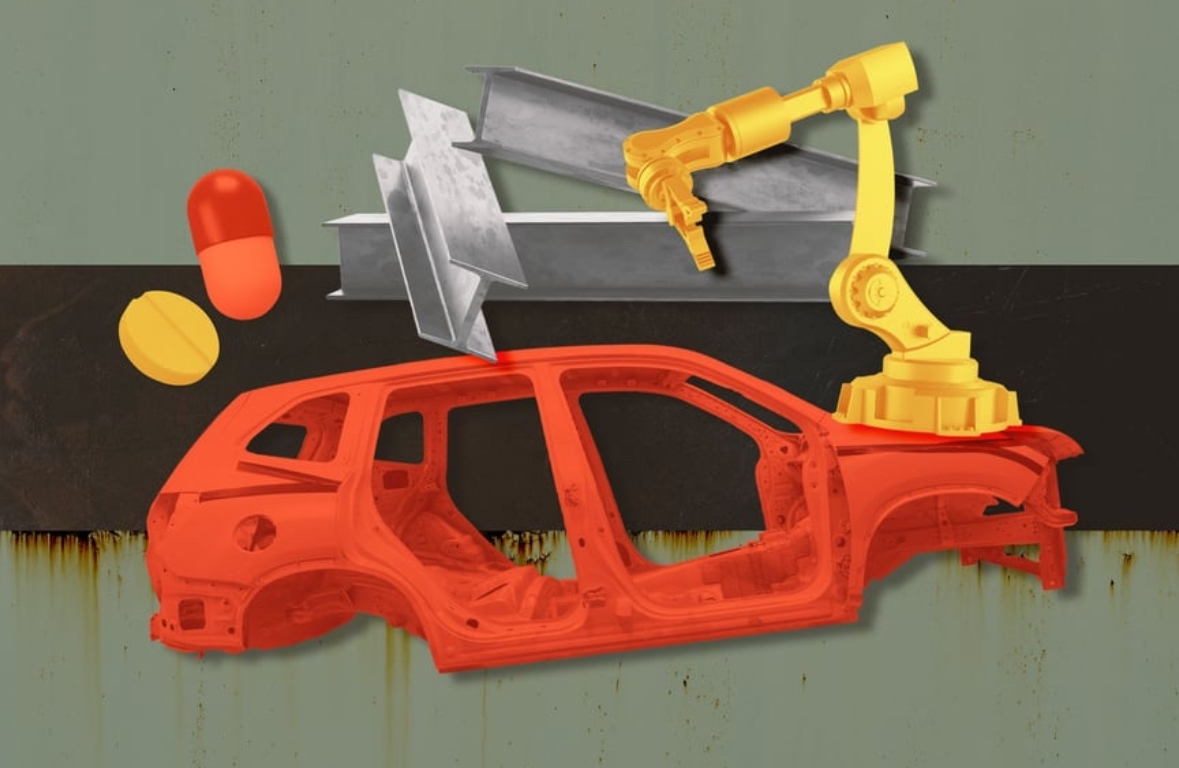Germany's key industries are increasingly doubting their own future viability. An Allensbach survey of 169 industrial companies commissioned by the restructuring consultancy FTI-Andersch shows corresponding warning signs.
The results, which are considered representative, are available exclusively to Handelsblatt.
The most important findings of the survey:
- 51 percent of the companies surveyed fear that their business will continue to stagnate or even deteriorate over the next twelve months.
- 60 percent of domestic automotive suppliers have given up on winning Chinese car manufacturers as customers, even though they are becoming increasingly important.
- 51 percent of mechanical engineering companies assume that they will lose their technology leadership to foreign competitors in the coming years.
- And 94 percent of energy-intensive companies, such as those in the chemical and steel industries, fear that there will be an exodus from Germany in their sector.
Deindustrialization in Germany is intensifying
The signs of deindustrialization are intensifying: German industry has reduced its workforce by almost four percent compared to the pre-corona year 2019, according to analyses by the consultancy EY based on figures from the Federal Statistical Office.
Confidence is also waning among young entrepreneurs. In the current Future Barometer of the Wirtschaftsjunioren Deutschland, 77.3% of respondents stated that they were pessimistic about the next two years. A year ago, this figure was 73.1 percent.
The German automotive industry is losing importance. In recent years, Volkswagen $VOW (-3,43%) BMW $BMW (-3,91%) and Mercedes $MBG (-3,11%) have sold fewer vehicles in all key regions of the world, even though the markets are growing. Chinese competitors in particular, such as BYD $1211 (+5,28%) or Xiaomi $1810 (-3,66%) are winning.
Domestic machine manufacturers are facing a historic break. 51% assume that technology leadership will no longer be in Germany in the future, but abroad. 70 percent therefore fear a strong or very strong impact. "The fact that the majority of mechanical engineering companies no longer believe in their global leadership role is worrying," says FTI-Andersch CEO Säuberlich.
Almost all companies in energy-intensive sectors such as the chemical or steel industry consider it likely or very likely that companies in their sector will move away from Germany either completely or partially. The main reason for this is the high energy prices.
Source text (excerpt) & graphic: Handelsblatt, 17.10.2025









